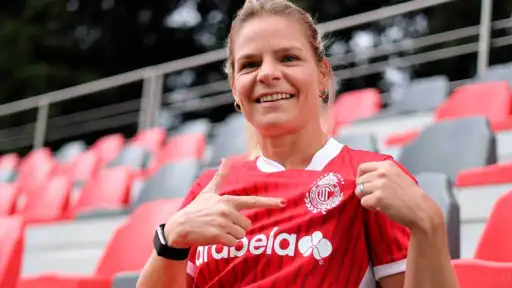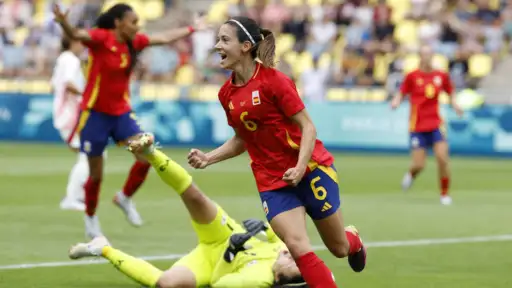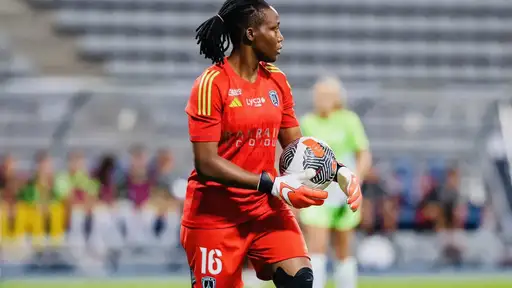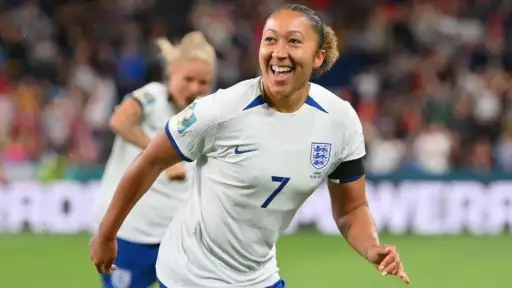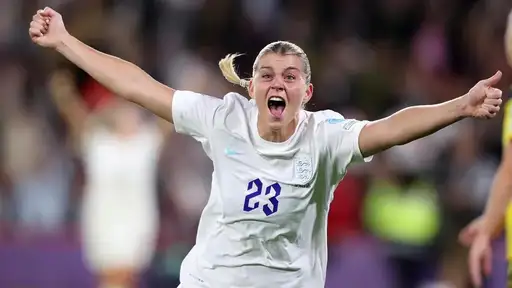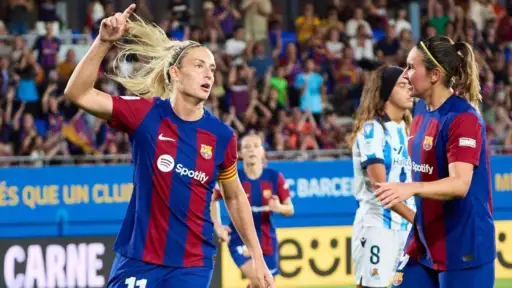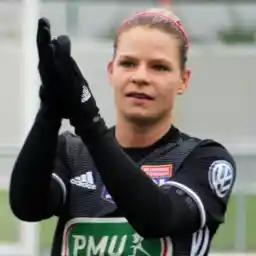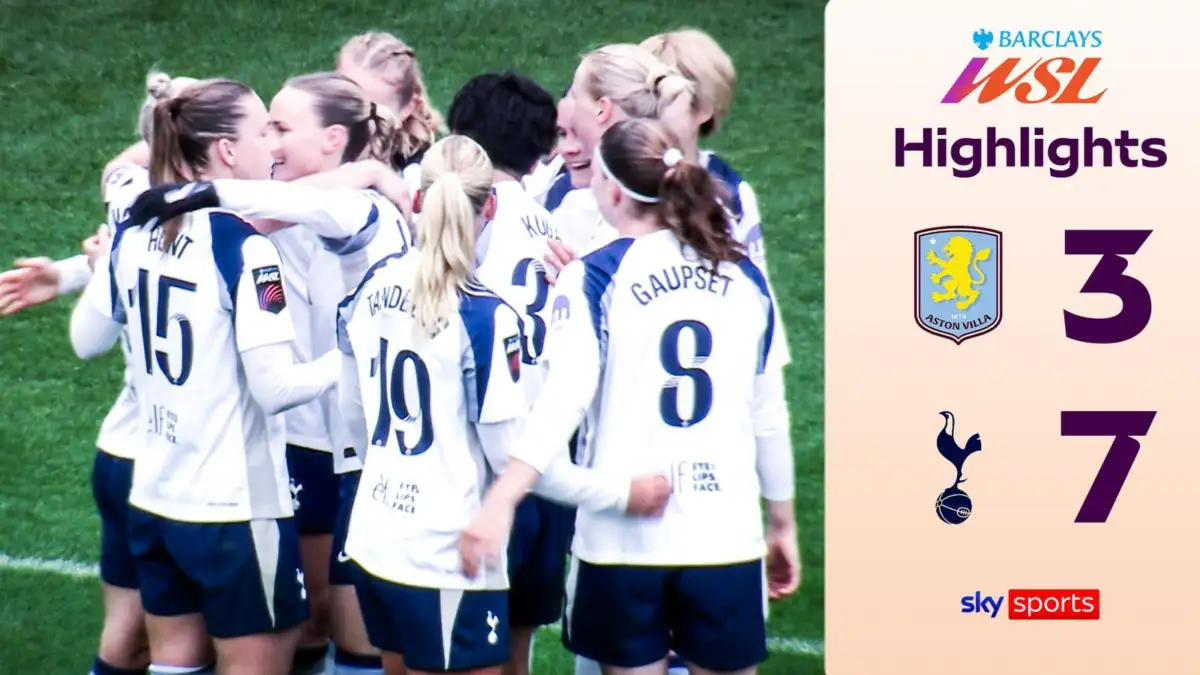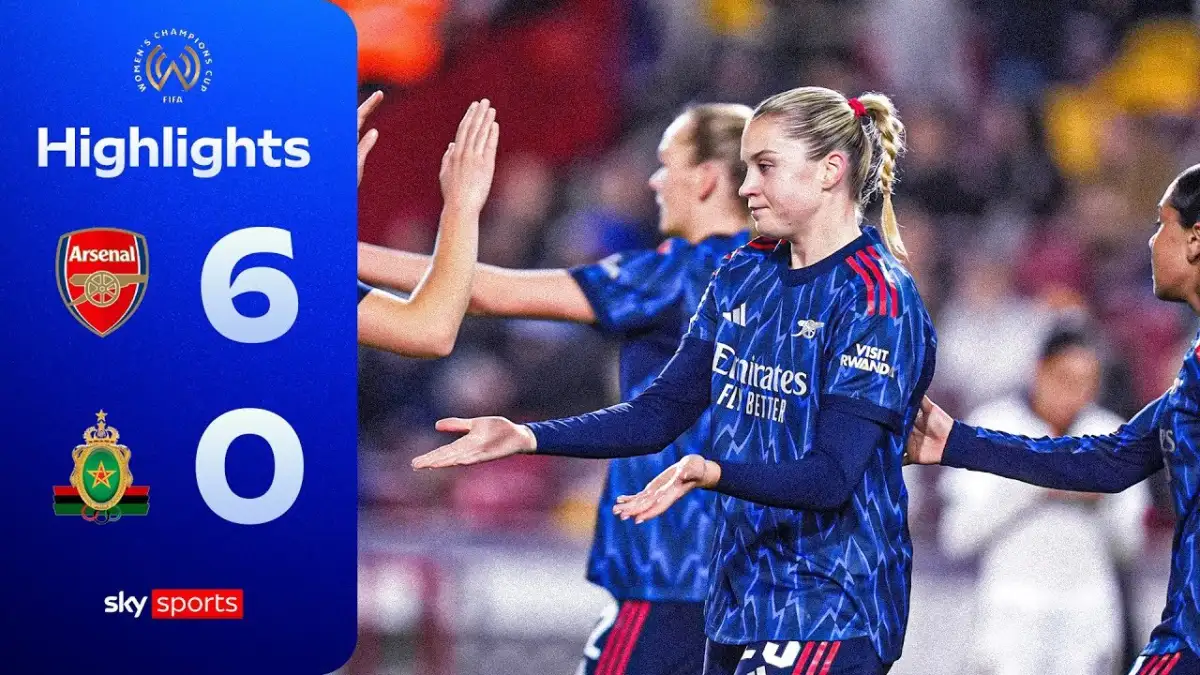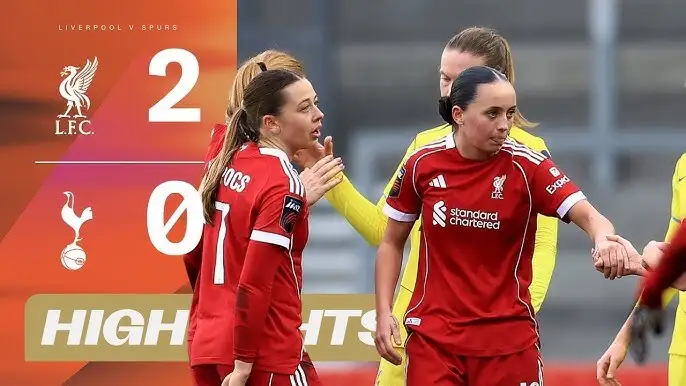Latest news from QueenBallers
Esther González’s story: from rural Andalusia to global star
- Amid minimal visibility for women’s football in Spain, González pioneered change; today, Spanish girls can aspire to emulate Ballon d'Or winners like Alexia Putellas and Aitana Bonmatí.
- Growing up in a small Andalusian village with her three sisters, González played with neighborhood boys and faced a four-hour round-trip for training—early challenges that shaped her resilience and passion for football.
Find the whole Esther's story on The Guardian
France's top scorer Le Sommer is leaving Lyon after 15 seasons for Mexican club Toluca
- France’s all-time leading scorer Eugénie Le Sommer signed with Mexican club Toluca for the upcoming Liga MX Femenil Apertura campaign, after ending her 15-year tenure at Lyon.
- During 2010–2025 at Lyon, Le Sommer made 262 appearances and scored 202 goals, winning 13 French league titles and eight UEFA Women’s Champions League trophies.
Find more here.
Misfortune for Spain? Bonmatí is in hospital with viral meningitis
- Spain and Barcelona midfielder Aitana Bonmatí, 27, was admitted to a Madrid hospital with viral meningitis just days before the UEFA Women’s Euro 2025 kicks off.
- She missed Spain’s 3–1 friendly win over Japan after reporting persistent fever; follow-up tests confirmed the diagnosis.
- Coach Montse Tomé and medical staff confirmed the illness is “under control,” though no precise return date has been provided.
Find the full story here.
Jun 28, 2025
Meet Maddli. The official mascot of Euro 2025
- The mascot of upcoming Euro is Saint Bernard puppy called Maddli. The St. Bernard as a symbol of the host country Switzerland.
- Named after Madeleine Boll—the first licensed female footballer in Switzerland—Maddli represents national pride.
- Curious, bold, and always playful, Maddli embodies unity, fair play, and celebration of football’s universal spirit—encouraging fans of all ages to join in.
French league's best goalkeeper is heading to Brighton
- Nigerian international goalkeeper Chiamaka Nnadozie joined Brighton & Hove Albion in the Women's Super League on a free transfer from Paris FC, with the move becoming effective July 1.
- During four seasons at Paris FC (2020–2025), Nnadozie featured in 16 UEFA Women’s Champions League matches and played a key role in their 2024/25 Coupe de France Féminine victory, saving two penalties in the final.
- Nnadozie was recognised as Division 1 Féminine Goalkeeper of the Season for 2023/24.
Read more here.
England's Lauren James: From Park Battles to European Championship Catalyst
- The Guardian's Donald McRae credits Lauren James' fierce drive and ball mastery to constant park games in Mortlake with her brothers, including England men’s player Reece James. Facing stronger and faster boys forced her to develop superior technique from a young age.
- As a young girl, she dreamed she was Eden Hazard, imitating his creativity and flair—qualities she now brings to Chelsea and the Lionesses on the biggest stage.
Read the full article here.
Jun 27, 2025
Euro is coming. Here is your guide to all 368 players
The Euro kicks off on 2 July. To mark the occasion, The Guardian has prepared profiles of all 368 players from the 16 teams that will be competing in the Euro.
Check it out here.
Jun 26, 2025
No VAR in Liga F for 2025/26 season
- The RFEF's newly approved competition regulations—effective from July 1, 2025—do not include a VAR system for Liga F, meaning no video-assisted referee technology will be used next season.
Learn more here.
